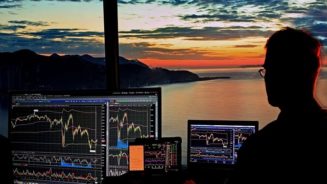In February, an improving economic outlook in the US and modestly better economic data from China drove a rebound in the high yield market, Carpaneda told International Adviser’s sister publication Fund Selector Asia.
“This change of environment has caused a big rally. The rebound has been so robust because oil prices have picked up slightly and we have seen returns between 3% and 5%, depending on the market.”
He cautioned, however, that the capital could flee as quick as it came in, should volatility spike again: “Money is not patient, and we may [see] more [market] volatility”.
He remains neutral on the outlook for high yield this year.
“There is no particular good news out there. The US economy has been growing. We think there will be decent growth of around 2% this year, but probably we are prepared to see the US growing below potential.”
EMs at different speeds
In terms of global growth, emerging markets are a strong driver because they make up half of the global economy, he said. Yet EMs are a patchwork of economies, with some such as Mexico, India and Indonesia doing well and others such as Brazil and Russia, doing not so well.
China’s slowdown is having an impact as well, he said.
“We have not been investing in China. Chinese companies are highly leveraged and we don’t like this excess of debt. Chinese banks have bad loans close to $300bn (£212.4bn, €263.7bn), but no one is concerned about these numbers because the government is very rich and is able to support the banks.
Carpaneda said the absence of catalysts in emerging markets makes it difficult to be optimistic, particularly with seemingly unpredictible policy changes in China and structural reforms in Latin America.
“In some countries like Brazil, due to political issues, it is difficult to see a recovery.”
However, he does not forecast a global recession because developed markets seem to be modestly progressing.
Europe, for example, had GDP growth of 1.5% last year and he expects it will be between 1.7% and 1.8% in 2016.
ECB losing impact?
European Central Bank accommodative policies are “making investors happy”, he said.
“The ECB is doing something spectacular, which is surprising the market. The central bank is trying to revive the economy but it is also helping investors and keeping the cost of financing down.”
But for sustainable growth, European governments need to do structural reforms to make industries more competitive, he said.
“The risk is that even though the market continues to rely on central banks, we will suddenly discover that central banks are not capable of solving issues for growth. Then you will see a big market crash.
“This loss of faith in central banks for the coming months is not happening yet, but it could be coming. Central banks alone are not really winning the fight.”
The high yield index has soared since mid-February

Source: FE. Trailing three years.




